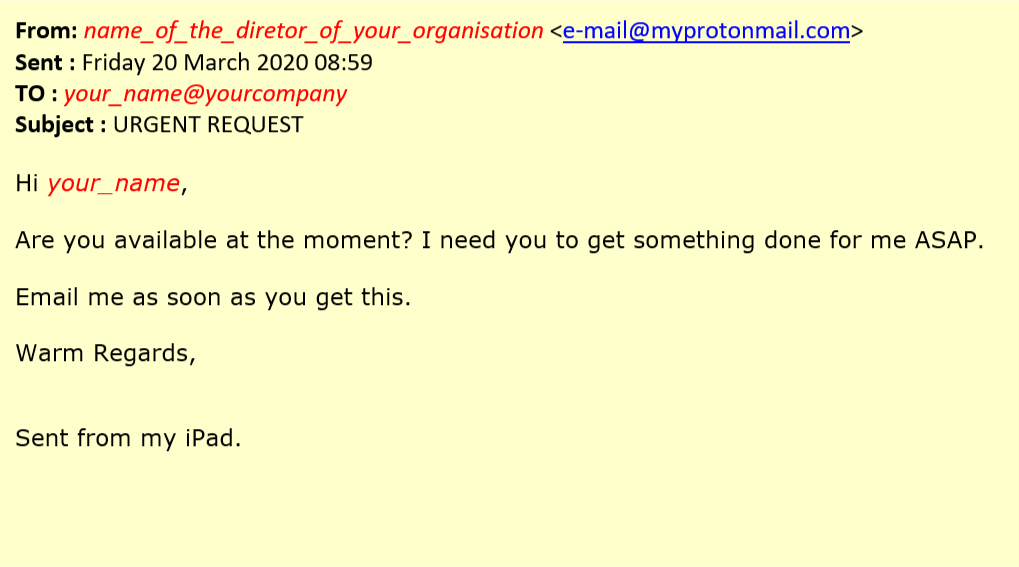The number of successful ransomware attacks have been increasing the past months. We have several recent cases of Belgian schools, universities and companies that have been affected, and with as result that nobody could work anymore.
It is an established fact that every world disaster (fire, flood, hurricane, epidemics, ...) is used as an opportunity by cybercriminals. This is why today we urge you to be extra vigilant.
The start of a ransomware infection very often begins with a phishing e-mail, containing either an URL or an attachment (typically .pdf, or MS Office document).
Don't be tempted by clicking on that fatal link in that innocuously looking e-mail. This is why today too in this Corona virus pandemic we urge you to be extra vigilant with every e-mail coming from unknown sources. And even from known sources, particularly from people higher in the hierarchy, definitely when the topic looks important or strange. Always be careful when an e-mail triggers your curiosity: if it makes you want to click, there could be a trick.

Typical example of a spear phishing e-mail, addressed to a particular person
Raise awareness among your colleagues and end users
When you are in doubt, consult a (security) expert within your organisation. The cost could be very high: completely unusable PC's, laptops, servers and all other infrastructure that your organisation needs to be operational, on top of the cost of the requested ransom.
You can find more information on these websites:
- Safe on web - Take the phishing test
- Centre for Cybersecurity Belgium - Cybersecurity webinars (available in French and Dutch)
- CERT.be - How to protect yourself against ransomware
- How to recognise coronavirus phishing scams
Do not hesitate to share the above information within your organization to better protect your colleagues and end users against these types of cybercrime.